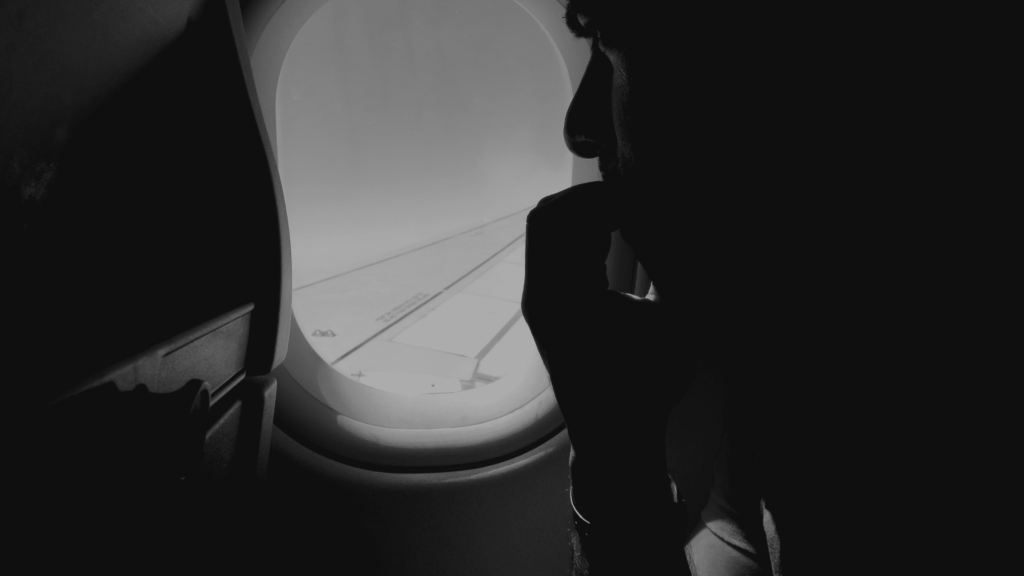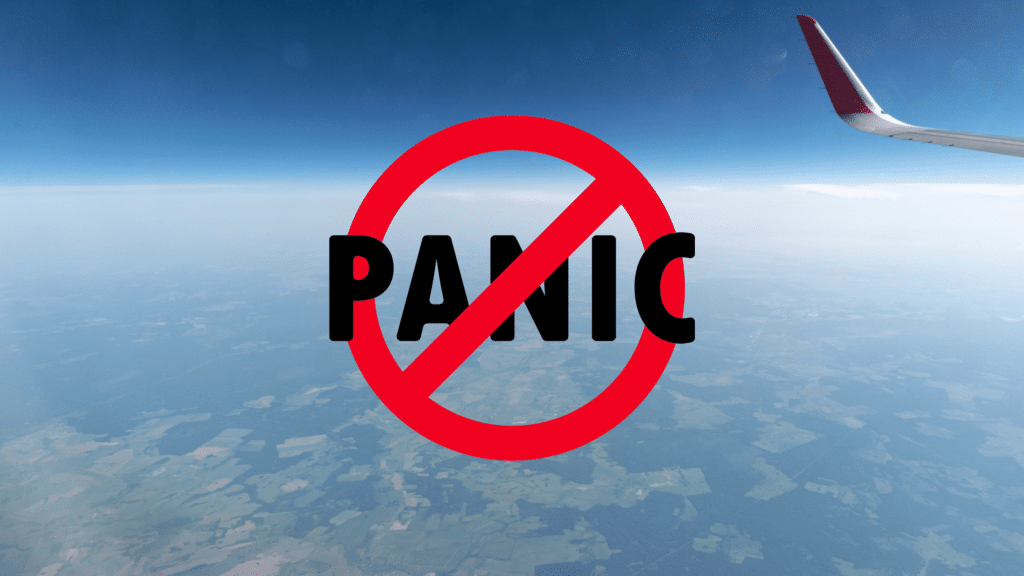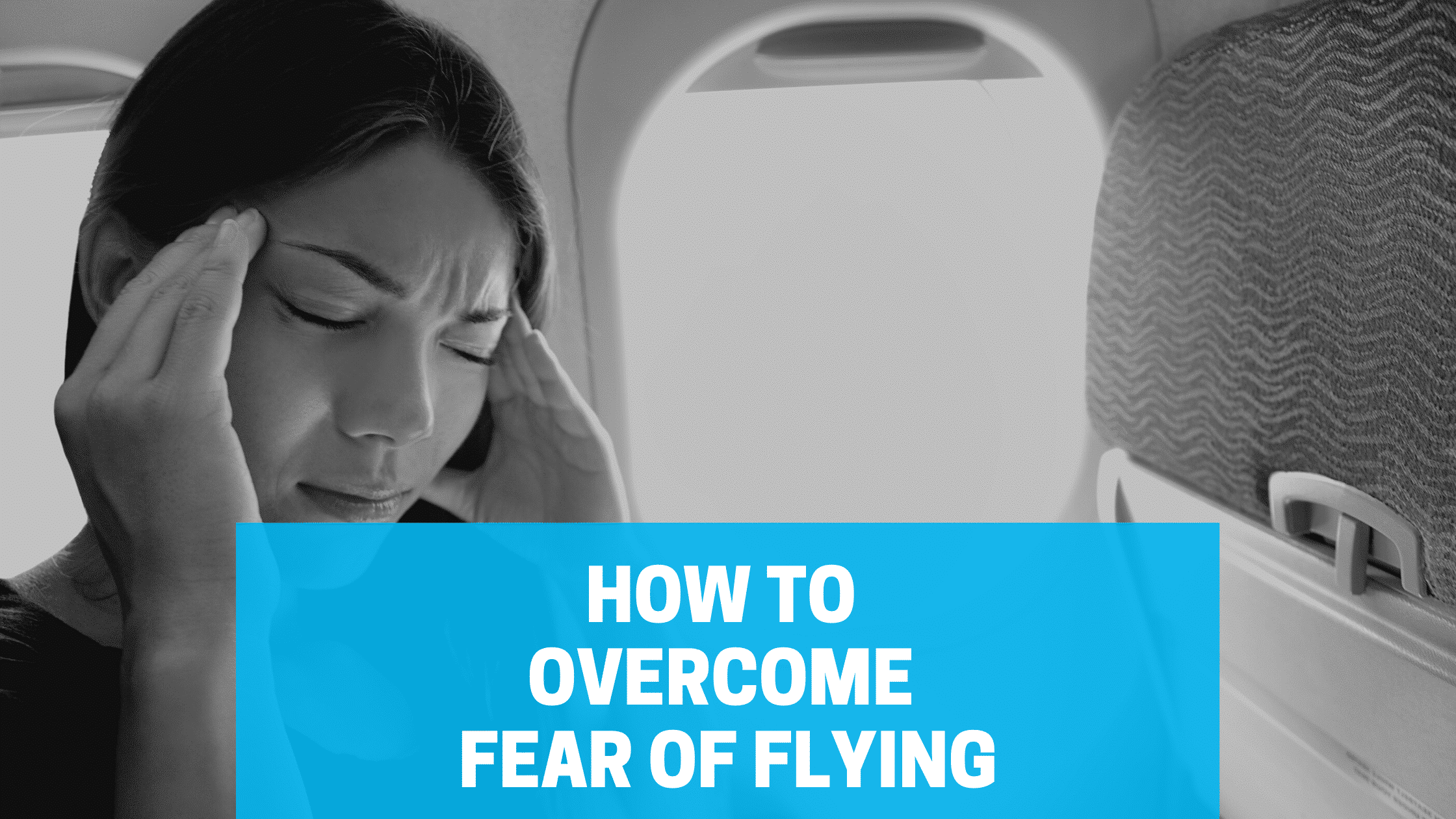Fear of Flying or Aerophobia: How to overcome it?
Published on December 27, 2021 – Last Updated on March 29, 2022
Aerophobia is a fear of flying or air travel. This fear can range from mild to severe, and it’s often treated with therapy, medication, or both. However, the more the condition worsens, the harder it becomes for people to function in their everyday lives. If you suffer from this phobia and want to know how to overcome it without resorting to drugs or other treatments that may be unnecessary for you, keep reading!
The first step is learning about what aerophobia is and isn’t. It’s not just an intense dislike of planes – although there are plenty of people who don’t like them because they’re uncomfortable on board – but rather a genuine terror at the thought of being high up in the sky amongst all those birds.
Fear of Flying Research
Researchers from the Anxiety and Depression Association found that between 4% and 40% of people experience flight phobia each year. Defining what it means to be afraid of flying has been a long-standing debate in psychology. While most people fear traveling by airplane, only those who meet the criteria for an actual phobia will experience debilitating anxiety when taking this mode of transportation.
A diagnosis can range anywhere between mild and severe levels with symptoms that include persistent worrying about getting on board; avoiding any future plans involving air travel even if you cannot avoid going through airport security regularly; checking the news for aviation disasters; constantly asking other people if they are scared of flying; insomnia, nightmares or bad dreams about flying.
Make sure you check out our: fear of flying apps post.
Flying Phobia Symptoms

The fear of flying is a common phobia that many people experience when flying or even just thinking about it. Physical symptoms can include:
- Chilliness
- Choking sensations
- Cloudy thinking
- Disorientation
- Flushed skin
- Gastrointestinal disturbance
- Rapid heart rate
- Crankiness
- Nauseousness
- Shaking
- Shortness of breath
- Sweating
Some people experience a full-blown panic attack when they are about to fly. Panic attacks can be accompanied by symptoms such as heart palpitations, feeling detached from reality, and the fear of dying. Others have difficulties that start long before boarding an airplane but become more apparent during flight time due to anticipatory anxiety. This type commonly occurs in those who already suffer from it enough for their fears to get triggered (i lived with myself like that).
This anxiety disorder is different from fear of flying because the individual doesn’t experience an exaggerated, intense and persistent fear. But they may feel more nervous than usual when they get on board a plane. They tend to feel more anxious about their discomfort with flying, not necessarily about dying in a plane crash or other catastrophic events.
What Causes Fear of Flying Anxiety Disorder?
Flying is one of the most common ways to get from one place to another. But for some people, flying can be a nightmare.
It turns out that there are many different factors that could cause this type of anxiety. For example, some people have had bad experiences with planes in the past, while others have an intense fear about being up so high in the sky without any land beneath them. It’s also possible that some people don’t like being confined or trapped inside a small space such as an airplane cabin for long periods of time, which would put them on edge before they even take off from the ground below. In order to find out what causes fear of flying disorder, you must know the symptoms as well as the possible treatments.
Whatever the cause, it’s essential to realize that you are not alone. Roughly 7 percent of American adults report having a fear of flying at some point in their lives, and around one-third experience this type of anxiety when they board a plane.
Basically, flight anxiety has the following factors:
- Experiencing a traumatic event about planes: Watching air disasters on television can have a negative impact on how a person feels about planes.
- Having a general phobia of getting into a small space: This can be related to an intense fear of flying, claustrophobia, or both. Being on top of so many people can also increase anxiety for some.
- Growing up with parents who have fears about flying: If your parents worried each time they got on a plane, this could have an impact on how you feel about traveling by air.
- Adverse experience on the plane: If a person has a bad flight and it includes turbulence, a noisy or uncomfortable cabin environment, or an unpleasant crew member, then they could be inclined to have more significant fears about flying in the future.
Claustrophobia or fear of heights can be a contributing factor to your fear of flying. In addition, having a family history of anxiety can make it more likely for you to develop this type of fear as well.
How to overcome the fear of flying?
There are many methods for how to overcome the fear of flying anxiety disorder. Unfortunately, there is no simple solution for everyone, but there are a handful of ways to help reduce your fears so you can fly without much worry.
- Do your research – Aerophobia is often developed after a traumatic flight involving an airplane; it might be something that happened when you were on board or something that was witnessed by you happening to someone else, but either way, the result is the same. We’re very adaptable creatures, so the fear of flying may be something you’ve built up in your head after having it happen to you too many times. But do remember, anything that traumatizes us is likely to be quickly forgotten by others around us, so keep this in mind if you don’t want to feel upset or upset someone else on your flight.
- Learn how planes work – Fear of flying is often developed because you don’t know how the plane works or what they do to ensure your safety. Once you understand that planes are safe, you will realize just how irrational your fears were. It’s easy to educate yourself on this topic by checking out some informative websites, watching educational videos, and even asking fellow passengers questions when you’re on a plane.
- Take some deep breaths – This is a natural way to reduce your anxiety and can be helpful in reducing your fear of flying as well. When you breathe deeply, it reduces the amount of cortisol that’s released from your brain into your body. Cortisol is known as the stress hormone, and when this gets out of control, it can cause you to feel more anxious than usual.
- Learn relaxation techniques – After you learn about planes and what they do to keep passengers safe, it’s also important for you to learn some deep breathing exercises that can be done when you’re on a plane or just before you get onto one. Self-hypnosis is another great relaxation technique that can be done to help you overcome your fear of flying.
Coping with the Fear of Flying Naturally, without anti-anxiety medication

When treating aerophobia, it’s important to confront your fear by gradually exposing yourself to whatever makes you nervous. This can be done with the help of a therapist or by searching for documented cases of plane incidents on the Internet. For example, if you are afraid of turbulence, it might be a good idea to watch documentaries about plane crashes and listen to interviews with people who survived them. In addition, there is Air Disasters or Plane Crash Investigation where you can find important information about previous plane crashes. This is called exposure therapy.
Doing this repeatedly will expose you gradually to your fear and help you cope with it in small, incremental steps. If this doesn’t work, you are then advised to seek treatment from a mental health professional or your family physician.
Meditation or Self Hypnosis
If you are one of the fearful fliers, then you are probably terrified about your next flight. The best way to start managing anxiety is by confronting your own fear, and you can do that by using meditation.
Our meditation app works for specific phobias; however, we have launched an app that is dedicated to curing irrational thoughts about flight phobias. The app manages all psychological triggers, and it will be the perfect treatment for your condition.
Download iOS: Fear of Flying App
Download Android: Flight Anxiety App
Anxiety Disorders Relaxation Approaches
You can also try relaxation techniques such as breathing exercises. This involves taking deep breaths while visualizing something peaceful, calming down your body’s natural fight-or-flight response before takeoff. For example, meditation would entail sitting for 15 minutes in total silence, focusing on your breathing until you become more comfortable with the sensation of flying.
Lastly, ask yourself what exactly scares you about air travel or flying in general. Once you identify your root fear, try to figure out how to expose yourself to whatever makes you uncomfortable gradually. If this sounds like too much work, you can always consider taking medication. Some medications for mental disorders have been proven to be effective in diminishing the fear of flying.
Conclusion
Fear of flying anxiety is a real thing. Knowing what’s best for you and your condition can be challenging, but we’re here to help! What has been working well for people who were once terrified? Be sure to share your tips below in the comments section if there’s anything else our readers should read about before taking on their own journey towards freedom from flight fears.




